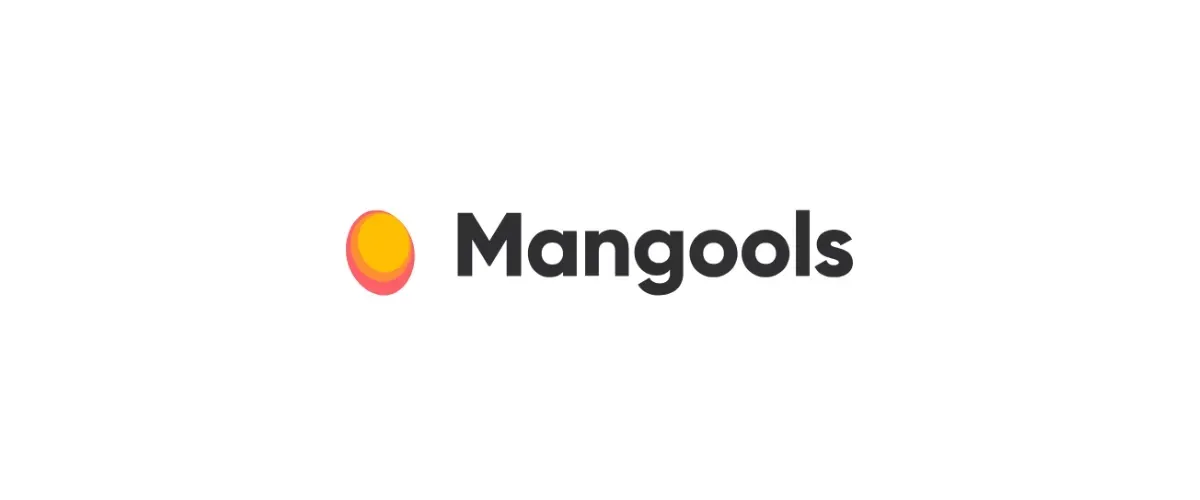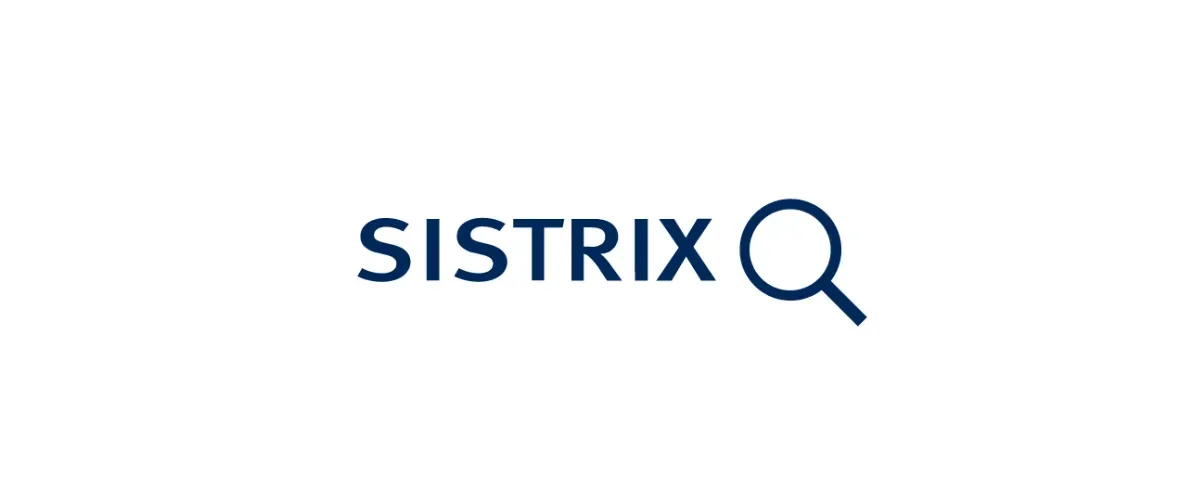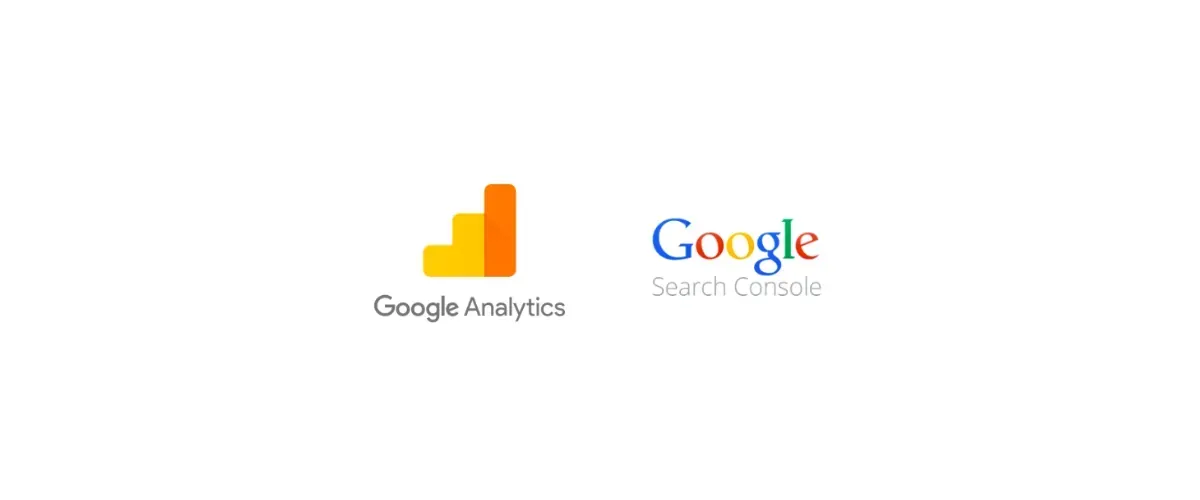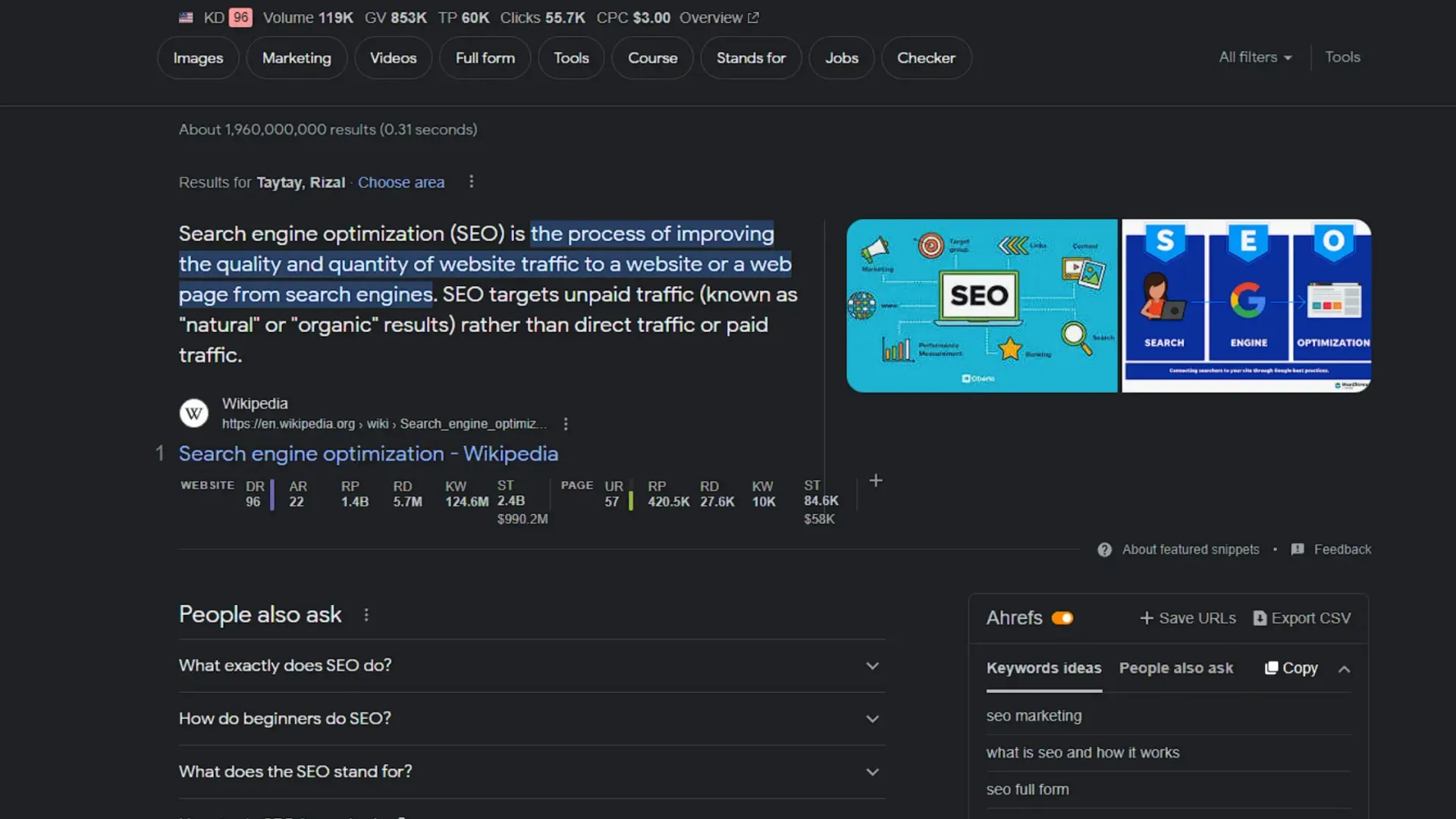10 Best SEO Tools for Ecommerce in 2024: Maximize your Sales
Navigating the Best SEO Tools for Ecommerce Success

Transitioning into the world of e-commerce, where countless digital storefronts seeks for attention, it's impossible to overstate the significance of SEO. At its core, SEO is the light guiding online shoppers to discover products and services. SEO tools emerge as the heroes in this quest for visibility and traffic.
These tools serve as virtual architects and shaping the online presence of e-commerce websites. The best SEO tools for Ecommerce drive heightened visibility on search engines by optimizing content, improving site structure, and refining keywords. The result is increased traffic and targeted visits from potential customers actively seeking customer search intent.
Yet, not all SEO tools are created equal. The choice of the right tool is a strategic decision that can define the trajectory of an e-commerce venture. The effectiveness of these tools in aligning with business goals, boosting visibility, and attracting the right audience is important for achieving success.
Criteria for Choosing the Ultimate SEO software for Ecommerce
Selecting the top SEO software for online commerce involves a comprehensive evaluation, considering various factors to guarantee a tailored fit.
Identifying Specific Needs and Goals for an Ecommerce Site
Understanding the unique intricacies of an e-commerce venture is the cornerstone of an effective SEO strategy. Pinpointing specific needs, whether increasing visibility, enhancing conversions, or targeting niche markets, lays the groundwork for choosing an SEO tool that aligns with these objectives.
Key Features to Look for the Right SEO Research Tool
Navigating the plethora of SEO tools demands a keen eye for functionalities catering specifically to e-commerce. Intense keyword research, competitor analysis, and on-page optimization capabilities are fundamental. Additionally, integrating e-commerce-centric features like product page optimization, transactional metrics, and platform compatibility proves important for success.
Comparison of Popular SEO Tools and Their Suitability for Ecommerce Businesses
A comparative analysis of leading SEO tools, such as SEMrush, Ahrefs, Moz, and others, against e-commerce-specific criteria, unveils their suitability. They assess their performance in eCommerce functionalities to identify the tool that best aligns with the goals and nuances of the e-commerce enterprise, facilitating an informed decision in selecting the most fitting SEO tool.
Leading SEO Tools for Ecommerce Success
Exploring the empire of SEO tools tailored explicitly for e-commerce unveils a spectrum of powerful options that have reshaped the digital landscape for online stores. Let's dive into a detailed review of some leading contenders, dissecting their features, functionalities, and the unique benefits they offer to e-commerce ventures.
1. Surfer SEO

Surfer SEO is a tool for optimizing content. Its features analyze top-performing content, suggesting improvements for SEO. With Surfer SEO, writers gain valuable insights, ensuring their content meets the SEO criteria for higher rankings.
- Offering: In-depth content analysis and optimization suggestions.
- Benefit for Ecommerce: Helps fine-tune product descriptions and blog content, enhancing search rankings.
- Visit Surfer SEO pricing for more details.
2. Clearscope
Clearscope is a content optimization platform that helps refine content by suggesting relevant keywords and phrases for improved SEO. Clearscope allows writers to create high-quality, SEO-friendly content that resonates with target audiences and ranks well on search engines.
- Offering: Assists in creating content aligned with user search intent.
- Benefit for Ecommerce: Aids in crafting product pages and blog posts that rank well and satisfy user queries.
- Visit
Clearscope pricing for more details.
3. SEMrush

Semrush
is a comprehensive SEO tool that offers detailed analytics. It assists in keyword research, backlink analysis, and competitive insights. Its user-friendly interface aids in optimizing websites for higher rankings and better visibility on search engines.
- Offering: Tools for keyword research, competitive analysis, and site auditing.
- Benefit for Ecommerce: Aids Ecommerce sites aiming to dominate search results by providing extensive data and insights.
- Visit SEMrush pricing for more details.
4. Ahrefs

Ahrefs
is a powerful SEO tool offering insights into website performance. It helps track backlinks, keyword rankings, and competitor analysis, assisting in devising effective SEO strategies. Ahrefs helps in optimizing content for better search engine visibility and ranking.
- Offering: Strong backlink analysis and keyword research capabilities.
- Benefit for Ecommerce: Crucial for improving online visibility by analyzing competitors and enhancing backlink strategies.
- Visit Ahrefs pricing for more details.
5. Screpy

Screpy
is an all-in-one SEO platform designed for website optimization. It provides tools for performance analysis, SEO monitoring, and error detection. With its user-friendly interface, Screpy assists in enhancing website performance and improving search engine rankings.
- Offering: Comprehensive website monitoring and SEO auditing.
- Benefit for Ecommerce: Identifies and resolves technical SEO issues that impact search performance.
- Pricing starts at $2.5/month; can go up to $15/month for advanced features.
6. BiQ

BiQ is an advanced SEO suite offering keyword analysis, content intelligence, and rank tracking. Its intuitive features allow marketers with data-driven insights to optimize their content strategies. BiQ's user-friendly interface ensures efficient keyword research and enhances content performance for higher search rankings.
- Offering: Focuses on user intent optimization and keyword intelligence.
- Benefit for Ecommerce: Helps understand customer search behavior, tailoring content for higher relevance.
- Pricing starts at $55/month; up to $115/month for professional features.
7. Mangools

Mangools, an SEO toolkit, simplifies keyword research, backlink analysis, and rank tracking. Its user-friendly interface enables smooth navigation for marketers. Mangools' comprehensive features help optimize websites, ensuring better search engine visibility and improved rankings.
- Offering: A User-friendly interface for keyword research, rank tracking, and backlink analysis.
- Benefit for Ecommerce: Ideal for an all-in-one SEO solution, especially for smaller Ecommerce businesses.
- Visit Mangools plans and pricing for more information.
8. Rank Math

Rank Math, a WordPress SEO plugin, optimizes websites effortlessly. Its powerful features streamline on-page SEO tasks, enhancing site performance. This tool provides valuable insights, improving rankings and increasing organic traffic.
- Offering: WordPress plugin streamlining on-page SEO.
- Benefit for Ecommerce: Optimizes product pages and blog content effortlessly for WordPress-based sites.
- Ranges from $5.75/month to $45.75/month
9. Sistrix

Sistrix, an SEO tool, offers complete insights for online visibility. Analyzing domains, keywords, and backlinks grants strategies for improved rankings. Its data-driven approach assists in optimizing content and enhancing website performance.
- Offering: Comprehensive SEO insights and competitor analysis.
- Benefit for Ecommerce: Helps track search visibility and optimize strategies based on competitors' performance.
- Sistrix Google begins at €99/month up to €599/month
10. Google Analytics & Google Search Console

Google Analytics & Google Search Console are vital tools for website optimization. They provide data on website traffic, user behavior, and search performance. Combining insights from both platforms enhances SEO strategies and maximizes online visibility and user experience.
- Offering: Free tools providing valuable data on site performance, user behavior, and search visibility.
- Benefit for Ecommerce: Essential for understanding site performance and optimizing for better user experience and search rankings.
- Pricing: Free
Implementing SEO Best Practices with the Select Tool
Implementing the chosen SEO tool within an e-commerce framework necessitates a strategic approach that aligns with best practices. Here's a breakdown of crucial strategies for optimizing various facets of an online store:
Optimizing Product Pages, Metadata, and Images
Harnessing the capabilities of the selected SEO tool involves meticulous optimization of product pages. This includes crafting compelling, keyword-rich product descriptions and titles, enhancing metadata for search engine visibility, and optimizing images with descriptive alt text. These efforts collectively improve the discoverability of products within search results, attracting potential buyers.
Utilizing Keyword Research and Analysis for Ecommerce Content
The chosen tool's powerful keyword research functionalities become invaluable for tailoring content that resonates with the target audience. By identifying high-converting keywords and integrating them strategically within product descriptions, blog posts, and other content, e-commerce platforms can enhance their visibility and relevance in search results.
Leveraging Technical SEO for a Consistent Shopping Experience
Technical SEO aspects ensure a smooth and user-friendly online shopping experience. This involves optimizing site structure, improving page load speeds, implementing mobile responsiveness, and ensuring secure transactions. The selected SEO tool can aid in identifying technical glitches and optimizing the site for optimal performance, enhancing user satisfaction and search engine rankings simultaneously.
Monitoring and Measuring SEO Performance
Keeping a vigilant eye on SEO performance is the key for ensuring the efficacy of implemented strategies. Here's how to effectively monitor and measure the impact of SEO efforts:
Introduction to Analytics Tools for Tracking SEO Performance
Analytics tools are the vigilant guardians, providing insights into the effectiveness of SEO endeavors. Platforms like Google Analytics and the features embedded within the chosen SEO tool offer a wealth of data regarding traffic sources, user behavior, and keyword performance, allowing businesses to make informed decisions.
Setting Up Key Performance Indicators (KPIs) for Ecommerce SEO
Establishing relevant KPIs tailored for e-commerce, such as conversion rates, organic traffic growth, and bounce rates, sets the benchmark for success. These metrics serve as guiding lights, indicating the performance and impact of SEO strategies on the business's bottom line.
Regular Monitoring, Analysis, and Adjustments for Continuous Improvement
Regularly monitoring and analyzing the gathered data facilitates informed adjustments and refinements to SEO strategies. Adapting to evolving trends and consumer behaviors ensures sustained growth and improvement in search engine rankings, perpetuating a cycle of continuous enhancement.
Summary
In Ecommerce, SEO is critical in guiding online shoppers to discover products and services. SEO tools act as architects, fortifying websites and driving higher visibility through on-page SEO optimization and keyword refinement. Selecting the right tool is essential, aligning with business goals for enduring success in the digital market. Criteria like specific needs and key features guide the selection process. Leading tools like SurferSEO, Clearscope, SEMrush, and others offer unique benefits, helping content optimization and performance tracking. Implementation involves optimizing product pages, leveraging keyword research, and ensuring technical SEO while monitoring and measuring performance to ensure ongoing rankings and user experience improvement.
Finalizing Excellence: The Climax of Selecting the Best SEO Tools for Ecommerce
Choosing the best SEO tools for Ecommerce isn't merely a choice; it's a strategic investment defining a brand's online success. The alignment between a tool's capabilities and a business's unique needs is paramount for adequate visibility and growth. Additionally, staying attuned to evolving SEO trends remains a linchpin for maintaining competitiveness. Embrace innovation, adapt to shifting algorithms, and continuously refine strategies to thrive in the dynamic digital landscape. Implementing these recommendations fosters a strong e-commerce SEO strategy, ensuring sustained visibility and success in the ever-evolving online marketplace.
"For additional SEO insights and best practices, explore our
Leads Flow Labs blog. Find more valuable information and tips to enhance your SEO strategies."











